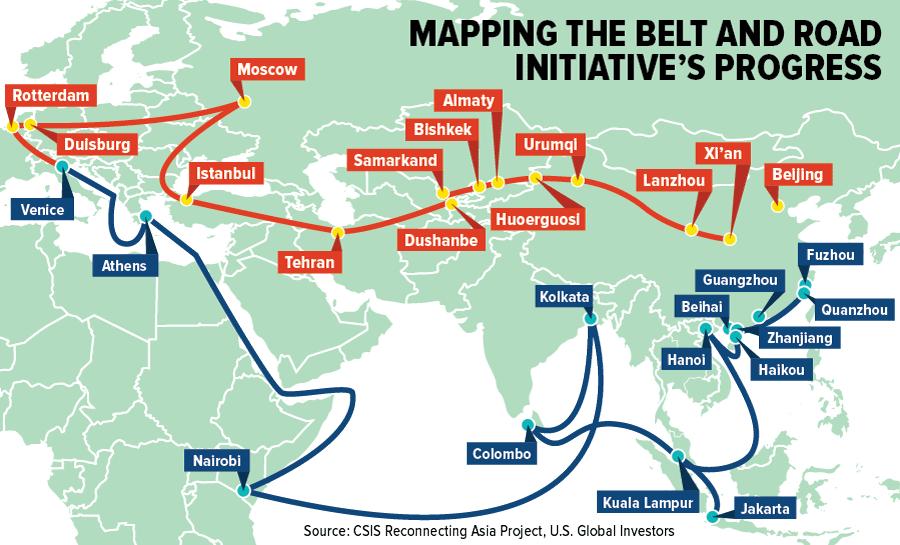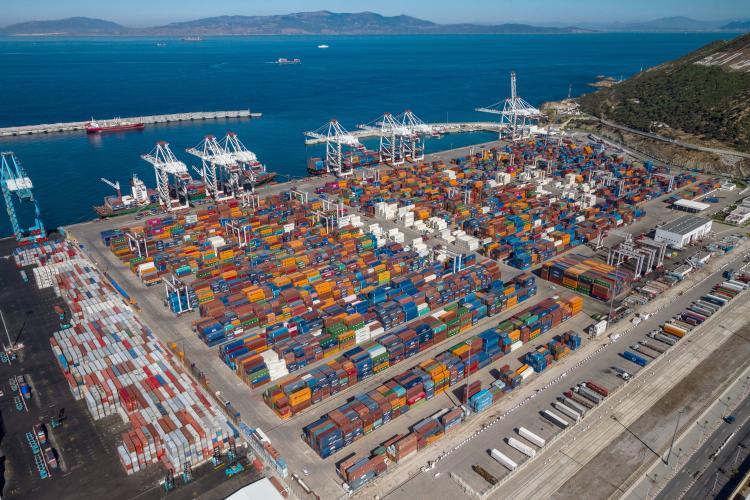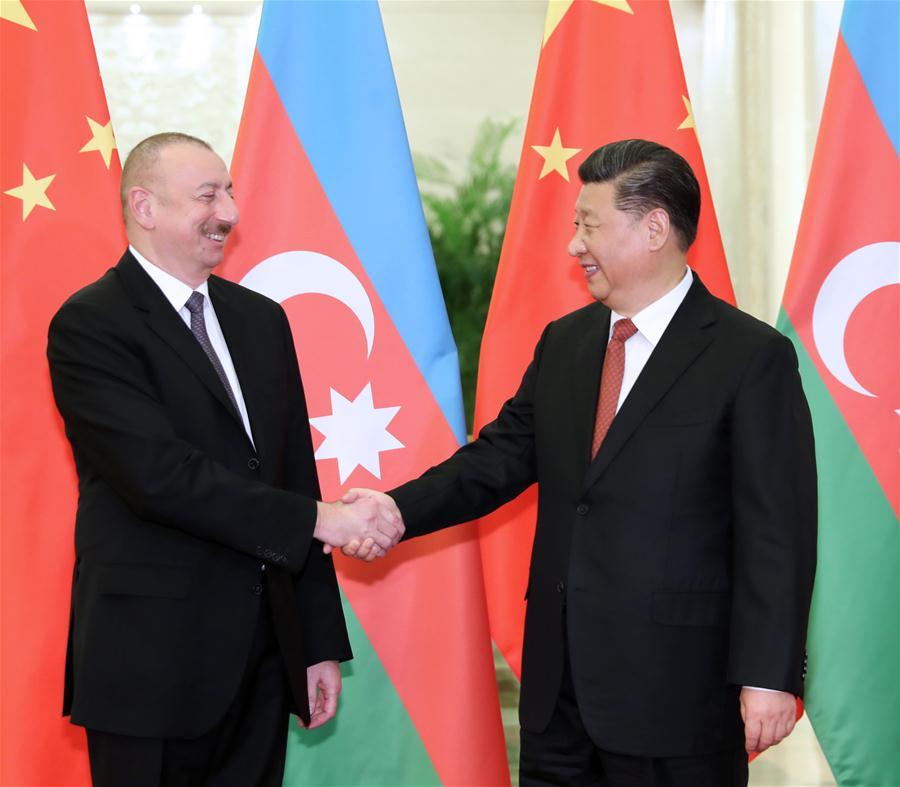China's expanding influence in Azerbaijan amid shifting global trade routes Beijing military in Baku as global trade routes shift
The ongoing visit of the General Directorate of International Military Cooperation of the Chinese People's Liberation Army to Azerbaijan is more than a routine diplomatic engagement. While the official statement remains formal, discussing military cooperation and mutual interests, the implications are far-reaching, especially given the current state of international transport routes.
The Context: Disruption of traditional trade routes

Traditional trade routes from China to Europe have been increasingly destabilized, particularly by conflicts in the Middle East, such as the disruptions caused by the Houthis. These challenges have paralyzed formerly reliable routes, compelling nations and corporations to seek alternative pathways to maintain and enhance trade flows. Against this backdrop, China’s strategic moves in the Caucasus region, particularly in Azerbaijan and Georgia, are significant.
Strategic moves in the Caucasus
A key development is the selection of the Chinese consortium China Communication Construction LTD to construct the deep-sea Georgian port of Anaklia. Owning 49% of this project underscores China's intention to establish a robust logistical and transport foothold in the region. This investment aligns with Beijing's broader strategy to circumvent access issues in Europe by creating a "middle corridor" through Azerbaijan and Georgia as part of its Belt and Road Initiative (BRI).
In 2023, trade turnover between Azerbaijan and China surged by 47.5%, amounting to $2.5 billion. China has surpassed Turkey as Azerbaijan's second-largest import partner, a testament to the deepening economic ties between the two nations. Chinese firms are significantly involved in Azerbaijan’s renewable energy sector, with Dongfang constructing the 230 MW Garadagh solar power plant and China Gezhouba Group Overseas Investment developing 2 GW of renewable energy projects, including green hydrogen production.

Renewable energy and technological integration
The collaboration extends into technological advancements and green energy. Azerbaijani Presidential aide Hikmat Haciyev has highlighted the benefits of Chinese green technologies in the country's renewable energy projects. President Ilham Aliyev has also underscored China's role in developing Azerbaijan's electric vehicle market, further cementing the bilateral relationship.
Azerbaijan is strategically leveraging China’s growing presence to enhance its geopolitical standing. Azerbaijan aims to capitalize on the global shift in economic power from West to East by positioning itself as a key player in the Trans-Caspian International Transport Corridor. This corridor is a critical component of the BRI and a crucial gateway for Chinese enterprises to access the Caucasus and EU markets. The mutual interest between Baku and Beijing creates a foundation for a beneficial partnership.
Despite the promising developments, there are inherent concerns about China’s increasing influence. Questions arise about whether China might dominate its relationship with Azerbaijan and impose its own behavior models. These concerns are rooted in historical apprehensions about China’s global strategies. However, China’s diplomatic principles over the past two decades emphasize non-confrontation and non-export of ideology. Beijing’s policies in bilateral relations are not directed against third countries, aiming instead for mutually beneficial cooperation.
China’s serious intentions and Azerbaijan’s opportunities

China’s interest in Azerbaijan is driven by its strategic and economic significance. Beijing’s investments and projects in Azerbaijan are aimed at long-term profitability rather than political maneuvering. This provides Baku with opportunities to navigate potential pitfalls in agreements with China, ensuring that the partnership remains balanced and advantageous.
Conclusion: A new era of cooperation
The visit of Chinese military officials to Azerbaijan symbolizes the broader strategic alignment between the two countries. As traditional trade routes face increasing challenges, China and Azerbaijan are pioneering new pathways that promise economic growth and stability. The deepening cooperation in military, economic, and technological sectors highlights a transformative phase in their bilateral relations.
Azerbaijan’s pivotal role in the Trans-Caspian International Transport Corridor and its integration into the BRI is central to this transformation. The increasing trade turnover, significant renewable energy projects, and strategic investments underscore the mutual benefits of this partnership. While concerns about China’s influence persist, Azerbaijan’s strategic positioning and diplomatic acumen provide it with the leverage to ensure that the relationship remains equitable and productive.
As global trade dynamics evolve, the China-Azerbaijan partnership exemplifies how nations can adapt and thrive amidst changing geopolitical landscapes. The new routes through the Caucasus not only offer alternative pathways for trade but also herald a new era of cooperation and development, reinforcing Azerbaijan’s status as a key player in regional and global geopolitics.








